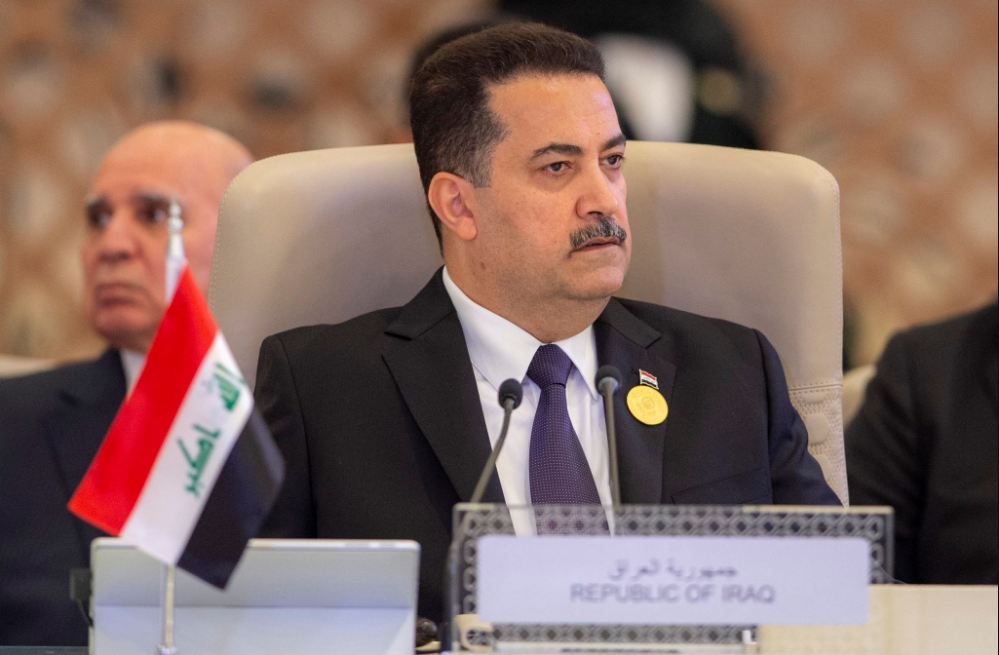Iran ‘desperately needs’ better ties with Egypt but stops short of seeking it
Egypt has always welcomed any positive interactions with Iran provided that it displays keenness to establish normal relations
Spokesman for Iran’s foreign ministry Nasser Kanaani has revealed there were ‘brief talks’ between Egypt’s President Abdel-Fattah El-Sisi and Iran’s foreign minister Hossein-Amir Abdollahian. The brief talks took place at the Baghdad II Conference held in Jordan last month.
The talks were positive, Kanaani told TRT Arabic, pointing out that the bilateral ties between the two nations are currently pursued through the interest sections. He alleged that there are no problems hindering the continuation of dialogue. Kanaani also stated that Iran and Egypt recently held a series of bilateral consular negotiations and agreed to resolve the problems relating to common consular issues.
The talks are part of continued ‘Iranian overtures’ to restore ties with Egypt—broken up since the assassination of former Egyptian president Mohammed Anwar al-Sadat who was assassinated on October 6th, 1981. Since then, there has been no official diplomatic relations between the two regional powers. However, now and then there have been attempts, mostly by Iran—which seems to be in a desperate need for better relations with Egypt, a major Sunni powerhouse—but to no avail.
The reasons for this rupture and the Egyptian lack of will to mend relations could be easily understood. For starters, the Khomeini regime, newly established at the time of assassinating Sadat, took a hostile position towards the Egyptian government, declaring vehement opposition to the peace treaty it signed with Israel. From this time onwards, the Iranian regime has refused to establish formal relations with the successive Egyptian governments—which comes in line with the well-established Iranian policy of strengthening bonds with non-state actors (radical groups and militias who serve as proxy actors working for the Iranian regime).
For its part, Egypt has maintained a position that averts open confrontation with Iran while at the same time refusing unbridled openness with an ideological regime whose foremost objective is to spread Shiism in the Sunni-majority country and establish alliances with likeminded groups such as the Muslim Brotherhood (the parent group of all Sunni and Shiite political Islam movements whose leaders and cadres have always looked with awe to Khomeini, the founder of the Islamic republic).
Over the course of four decades, there have been no serious attempts by Iran to establish ‘normal’ relations with the successive Egyptian governments. The Iranian regime adopted a hostile position against Egyptian president Anwar al-Sadat, naming one of Tehran’s streets after his assassin Khalid al-Islambouli, a gesture showing not only defiance of the Egyptian state and its policy but also support for and sympathy with its Islamist dissidents, particularly the fringes among them.
After the 2011 popular uprising that ousted Egypt’s longtime president Hosni Mubarak, Iran welcomed the revolution, praising what it calls ‘the Islamic Awakening. When the Muslim Brotherhood, a longstanding sympathetic to Iran, came to power, Iran saw it as a new opportunity to make inroads into a longtime insurmountable garrison. During the one-year tenure, late Egyptian president Mohammed Morsi had visited Iran, as part of the nonaligned movement’s summit. Former Iranian president Mahmoud Ahmadinejad also visited Egypt, a visit that sparked uproar among Egyptian political forces.
The Muslim Brotherhood’s tenure in office, which ended in July 2013, was the short window of opportunity that helped expose the Iranian real intensions towards Egypt, a major Sunni power. Iranian officials have hastened to offer counsel to their ‘revolutionary peers’ within the Muslim Brotherhood. It’s reported that Qassem Soleimani, the late chief of the IRGC’s elite Qods Force, advised the Muslim Brotherhood leaders to establish an IRGC-style militia that protect the revolution.
Thus, Tehran has harbored animosity to the Egyptian state, a thing that Egyptian governments have refused to tolerate or concede. However, Egypt has always welcomed any positive interactions with Iran provided that it displays keenness to establish normal relations and doesn’t interfere in internal affairs of other countries.
Given these Iranian attempts and the Egyptian position towards them, it’s clear that Iran desperately needs better ties with Egypt, a home to 100 million people, with a powerful military possessing the most sophisticated weapons’ arsenals in the world. It’s also home to Al-Azhar, a reputable Sunni seminary which have always adopted calls for ‘proximity between Sunni and Jafari schools of jurisprudence. To sum up, Iran needs Egypt, but to disseminate its ideology, forge alliances with its Islamist peers and add it to the bastions in which it has a strong, unshakable and well-established foothold. Egypt, on the other hand, needs to establish normal relations with Iran—on conditions that it doesn’t disseminate Shiism or interfere in the country’s internal affairs.
Iran doesn’t seem willing to comply with the Egyptian conditions and Egypt isn’t ready to jeopardize its security for better ties with a regime harboring feud to the very basic foreign policy tenets of the Egyptian state (establishing good ties with the West and supporting brotherly countries in the Gulf region). Iran does need better ties with Egypt, but it doesn’t truly seek them. Therefore, the recent meeting between Egypt’s president Abdel-Fattah El-Sisi and Iran’s foreign minister may lead to a temporary breakthrough—but bilateral relations won’t proceed further as long as the Iranian hostile policies remain unchanged. Still, Egypt’s president—a bold and powerful leader—could break decades-long tradition and seek better ties with the Iranians, but this is highly unlikely.
Mostapha Hassan Abdelwahab is the former editorial manager of the English edition of the Baghdad Post. He is focusing on Iraq, Iran and political Islam movements, with articles posted on the Herald Report, Vocal Europe, the Greater Middle East and other platforms.
Disclaimer: Views expressed by writers in this section are their own and do not reflect Milli Chronicle’s point-of-view.



